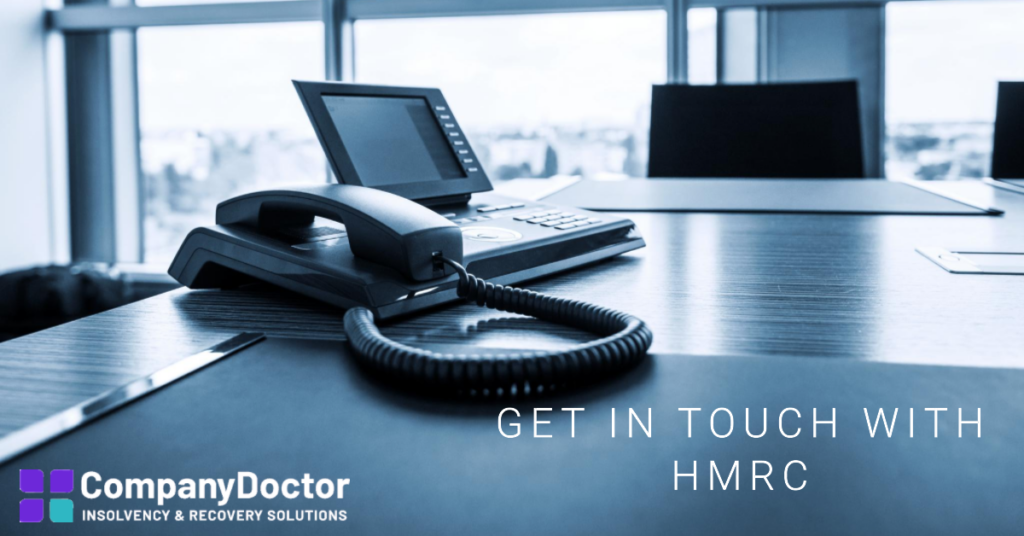Directors can address tax issues via HMRC helplines. Knowing the correct contact number for HMRC tax and optimal call time is vital.
The rules and regulations of HMRC can be complex and difficult to understand, which often leads to mistakes being made by sole traders, business owners, and company directors. These mistakes can have serious consequences in the future. However, HMRC offers various forms of assistance to prevent individuals from getting caught up in the system. They provide online help through their website, offering guides, videos, and webinars. Additionally, personalized assistance can be obtained through phone calls, postal services, online forms, or live web chats.
Quick Links
- HMRC VAT Helpline
- How to pay your VAT
- HMRC Corporation Tax Helpline
- How to pay your Corporation Tax
- Inform HMRC that you don’t owe any Corporation Tax
- HMRC Payroll Helpline
- General enquiries for new employers
- Make PAYE or NI payments
- HMRC Call Waiting Times: When to Call for Shorter Wait Times
- What if you’re struggling to pay?
- References
HMRC VAT Helpline
General Enquiries
If you have any general enquiries about VAT, HMRC operate a dedicated VAT advice service.
Telephone:
- 0300 200 3700 (Outside UK: +44 2920 501 261)
Lines are open 8am-6pm Monday-Friday
Website: https://www.gov.uk/government/organisations/hm-revenue-customs/contact/vat-enquiries
Post:
General VAT enquiries and letters with attachments. Note that replies may take longer than 15 working days.
- BT VAT
HM Revenue and Customs
BX9 1WR
United Kingdom
VAT insolvency enquiries:
Read section 1.4 of VAT Notice 700/56 to find out which HMRC team to write to if you have a question about VAT insolvencies.
Website: https://www.gov.uk/guidance/insolvency-and-vat-notice-70056#further-information-and-advice
Online:
Website: https://www.tax.service.gov.uk/shortforms/form/VATGenEnq?dept-name=&sub-dept-name=&location=47
How to pay your VAT
Ensure that you settle your VAT payment by the specified due date indicated on your VAT return. Failure to do so may result in the imposition of a surcharge or penalty. It is important to note that different deadlines if you use:
If you cannot pay your VAT bill on time you may need to enter into a time to pay arrangement.
Pay your VAT bill online:
You can pay HM Revenue and Customs (HMRC) online by:
- approving a payment through your bank account using your online banking details
- debit or corporate credit card
- Direct Debit
You’ll need your 9-digit VAT registration number.
Pay by Bank Transfer:
You can pay HM Revenue and Customs (HMRC) directly from a UK bank account with Faster Payments, CHAPS or Bacs. Contact your bank or use your online bank account or banking app to make the payment. Use the following bank details for HMRC:
- Sort code – 08 32 00
- Account number – 11963155
- Account name – HMRC VAT
Pay online by debit or corporate credit card:
You can pay your VAT (and any surcharges or penalties you owe) online. You can pay with:
- a corporate credit card
- a corporate debit card
- a personal debit card (you cannot pay with a personal credit card)
You’ll need to give your 9-digit VAT registration number. You can find your 9-digit VAT registration number:
- in your VAT online account
- on your VAT registration certificate
At your bank or building society:
You need to order paying-in slips online or by phone from HM Revenue and Customs (HMRC) before you can pay this way. It can take up to 6 weeks for them to arrive.
Use the paying-in slips to pay at your own bank or building society by cash or cheque. Make your cheque payable to ‘HM Revenue and Customs only’.
Write your 9-digit VAT registration number on the back of your cheque
Freephone including all mobiles
HMRC Corporation Tax Helpline
General Enquiries
HMRC offers a specialised helpline for general inquiries regarding Corporation Tax. When contacting them, it is important to provide your 10-digit Unique Tax Reference.
Telephone:
- 0300 200 3410 (Outside the UK: +44 151 268 0571)
Lines are open 8am-6pm Monday-Friday
Post:
- Corporation Tax Services
HM Revenue and Customs
BX9 1AX
United Kingdom
How to pay your Corporation Tax
If your profits subject to taxation exceed £1.5 million, you are required to make your Corporation Tax payments in installments. However, if your total taxable profits are below £1.5 million, you must settle your Corporation Tax bill within 9 months and 1 day after the conclusion of your accounting period. In such cases, you have the option to make your Corporation Tax payment using any of the methods listed below, but please be aware that direct phone payments are not accepted.
Ways to pay your Corporation Tax bill are as follows:
Pay online:
You can pay online, via telephone banking or BACS using the following account details for the office from which you received your Corporation Tax payslip, you will need your 17-character Corporation Tax payslip reference for the accounting period you’re paying:
- Account Name: HMRC Cumbernauld
- Sort Code: 083210
- Account Number: 12001039
- Account Name: HMRC Shipley
- Sort Code: 083210
- Account Number: 12001020
To pay from an overseas account you should use the following details:
- Account Name: HMRC Cumbernauld
- Account Number: (IBAN): GB62BARC20114770297690
- Bank Identifier Code: (BIC): BARCGB22
- Account Name: HMRC Shipley
- Account Number: (IBAN): GB03BARC20114783977692
- Bank Identifier Code: (BIC): BARCGB22
Pay via the CHAPS system
Pay using the account details above to either the Cumbernauld office or the Shipley office.
Pay online via a debit card or corporate credit card
Note that you cannot pay using a personal credit card; you will need your 17-character Corporation Tax payslip reference for the accounting period you’re paying.
Directly at your bank or building society
You will need the payslip that HMRC sent you. Make cheques payable to ‘HM Revenue and Customs only’ followed by your 17-character Corporation Tax payslip reference for the accounting period you’re paying.

Inform HMRC that you don’t owe any Corporation Tax
You should let HMRC know if you have no Corporation Tax payment to make for an accounting period otherwise they will issue payment reminders. You must still file a company tax return, even if it shows nothing due.
Before you file the company tax return you can let HMRC know there is no payment due by completing the following onlne form http://www.hmrc.gov.uk/gds/payinghmrc/ct-nil.htm
Note that you will need the 17 character reference on the Corporation Tax payslip that you received.
Alternatively, return the Corporation Tax payslip that you received to HMRC marked ‘NIL due’.
HMRC Payroll Helpline
General Enquiries
If you are an employer and have any general enquiries about Payroll, HMRC operate a dedicated Payroll advice service.
Telephone:
Before you call. The helpline may ask you some security questions. Make sure your personal details and address are up to date in your personal tax account or you could fail telephone security.
- 0300 200 3200 (Outside UK: +44 151 268 0558)
Lines are open Monday to Friday: 8am to 6pm. Closed weekends and bank holidays.
Website: https://www.gov.uk/government/organisations/hm-revenue-customs/contact/employer-enquiries
Post:
Write to HMRC to get advice for employers. You do not need to include a street name, city name or PO box when writing to this address.
- PT Operations North East England
HM Revenue and Customs
BX9 1BX
United Kingdom
Online Chat:
https://www.tax.service.gov.uk/ask-hmrc/chat/employer-enquiries?
Online Forms:
HMRC also provide structured email forms for:
- Notification of payrolled benefits
- Inform HMRC that you have no return of Class 1A National Insurance contributions
General enquiries for new employers
There is also a dedicated service for new employers:
Telephone:
You will need your employer reference number, if you have one.
- 0300 200 3211
Lines are open Monday to Friday: 8am to 6pm. Closed weekends and bank holidays.
Call HMRC if you’re an employer and need advice about:
- stakeholder pensions
- student loan repayments
- the Construction Industry Scheme
- PAYE in real time, including:
- Statutory Sick Pay
- Maternity and Paternity Pay
Post:
Write to HMRC for advice if you’re a new employer or contractor. You do not need to include a street name, city name or PO box when writing to this address.
- National Insurance Contributions and Employers Office
HM Revenue and Customs
BX9 1BX
United Kingdom
Make PAYE or NI payments
Pay online:
You’ll need to use your 13-character accounts office reference number as the payment reference. You can find this:
- in your HMRC online account
- on the letter HMRC sent you when you registered as an employer (or sent to your accountant or tax adviser if they registered on your behalf)
- in the front of your payment booklet if you have one
You need to add 4 extra numbers to the end of your 13-character accounts office reference number each time you make an early or late payment. If you use this service, it will work out the numbers for you.
Other ways to pay include:
- Online or telephone banking by Faster Payments or CHAPS
- Debit or corporate credit card online
- Single payment Direct Debit
- Online or telephone banking by Bacs
- At your bank or building society (cash or cheque)
- By cheque through the post
- Payment booklets. You’ll need a payment booklet from HMRC to pay at your bank or building society, or by post. If you do not have one, ask HMRC to send it to you. If you’re no longer using your payment booklet, you can ask HMRC to stop sending it. HMRC will automatically stop sending your payment booklet if you make 2 or more electronic payments in a year.
HMRC Call Waiting Times: When to Call for Shorter Wait Times
Waiting times can vary depending on the time of day, the day of the week, and the time of the year. Here’s what you need to know about HMRC call waiting times:
Average Waiting Times: On average, the waiting time to get through to an HMRC advisor can range from a few minutes to over an hour! The waiting time tends to be longer during peak times, such as lunchtime or just before the helpline closes.
Best Times to Call: If you want to avoid long waiting times, it’s generally best to call early in the morning or late in the afternoon. According to HMRC, their lines are usually less busy before 10 am on weekdays.
Busiest Periods: HMRC helplines are usually busiest in the lead-up to the Self Assessment deadline in January and the Corporation Tax deadline in December. If your query isn’t urgent, it might be best to avoid these periods.
Prepare for the Call: To make the most of your call and potentially reduce the waiting time, make sure you have all the necessary information to hand before you call. This includes your National Insurance number, tax reference number, and any relevant paperwork.
Remember, HMRC also offers online services and webchat options which may be quicker and more convenient for handling common queries. If you’re unsure about anything, don’t hesitate to contact the HMRC helpline for guidance.
What if you’re struggling to pay?
If you are facing challenges in paying your VAT, corporation tax, payroll, or any other HMRC bill, feel free to reach out to us today. Our team of experts specialise in business recovery and turnaround, boasting more than 35 years of experience in assisting companies dealing with financial difficulties. We take the time to fully comprehend your unique circumstances and then provide practical advice on how to progress forward.
References
The primary sources for this article are listed below.
HM Revenue & Customs – GOV.UK (www.gov.uk)
Details of our standards for producing accurate, unbiased content can be found in our editorial policy here.

